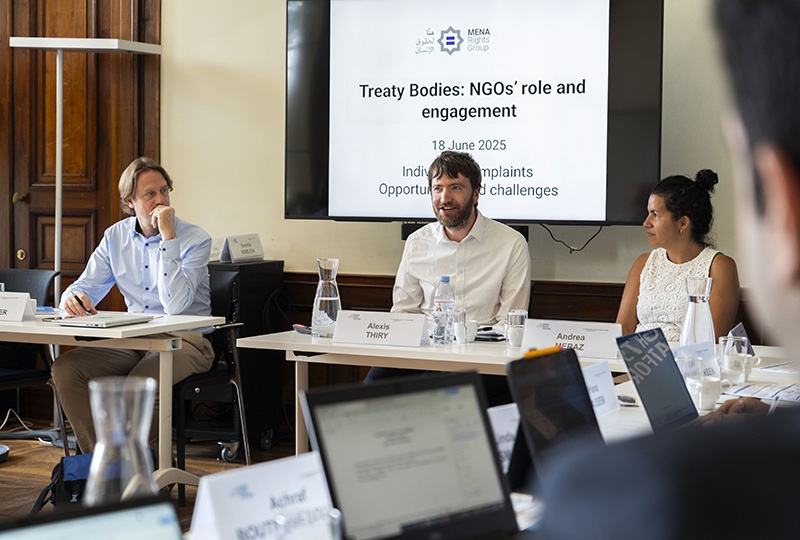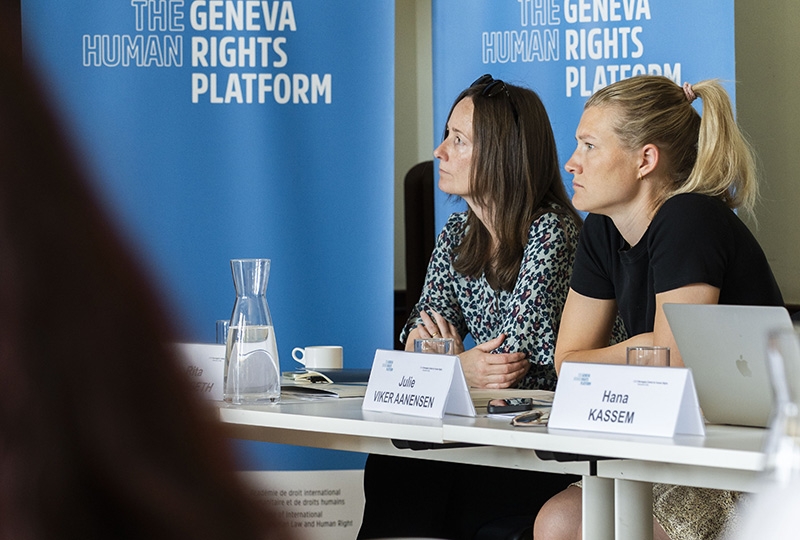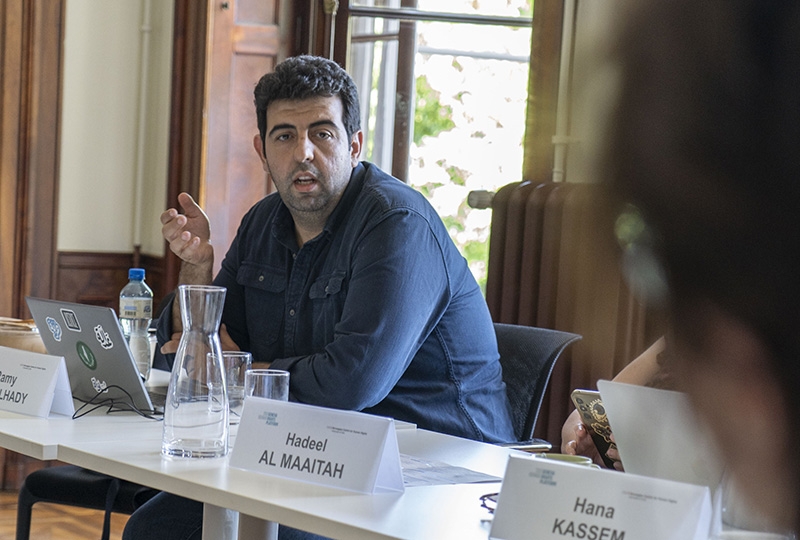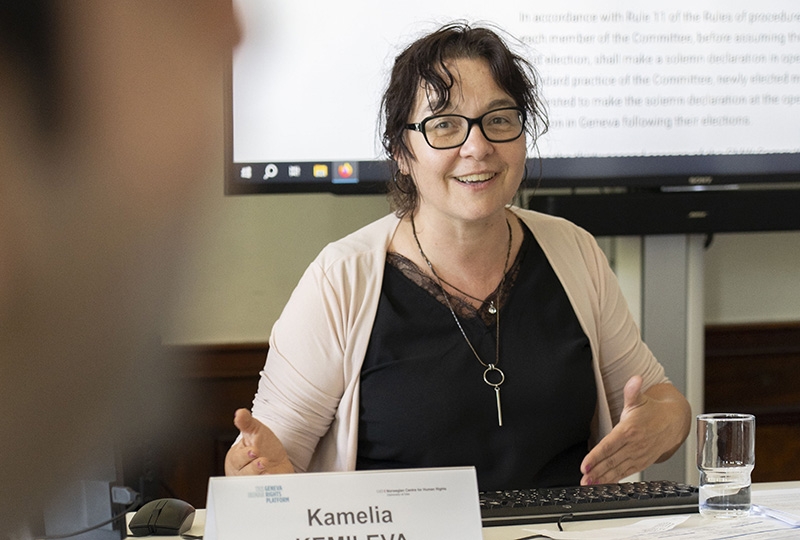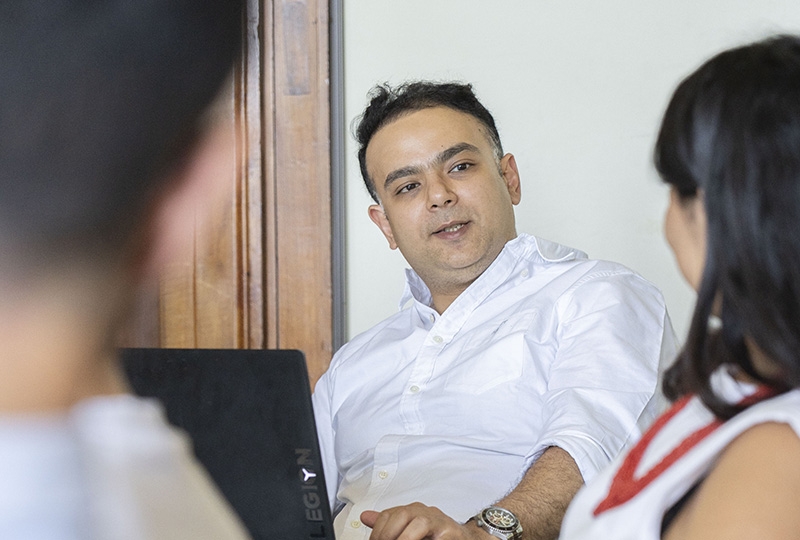Collective Learning with a Regional Focus
'For many actors in the region, Geneva can seem distant or inaccessible' said Victoire Berrebi, Project Assistant at the Geneva Human Rights Platform. 'This training is about opening doors—giving participants insights and access to engage directly with the system.'
Participants represented a diverse cross-section of professionals from Egypt, Jordan, Lebanon, Morocco, Palestine, and Syria. Their backgrounds ranged from government advisors to university professors, human rights researchers, and legal officers engaged with international accountability mechanisms.
Achraf Boutekhedoust, Human Rights Officer at the Moroccan Interministerial Delegation for Human Rights, reflected, 'Over four days, we gained direct exposure to the workings of UN institutions through expert-led discussions and live participation in the 59th session of the Human Rights Council. This was also a space for meaningful exchange between practitioners committed to advancing human rights through research, education, and international cooperation.'
The strong engagement and regional diversity of this second edition reaffirm the importance of sustained, tailored support for MENA professionals. Building on this momentum, the Geneva Human Rights Platform and its partners hope to continue offering regular, regionally focused editions of this training, creating a lasting platform for exchange, learning, and international engagement.


